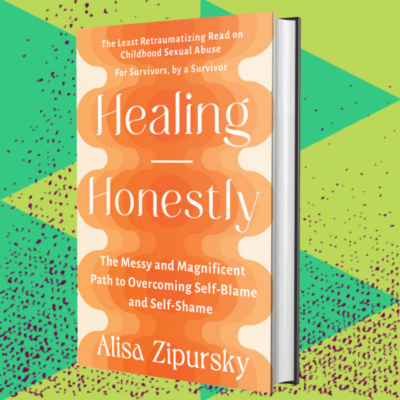This story references Dr. Blasey Ford’s trauma but does not describe it. It is focused on the neuroscience of trauma.
Banner photo credit: Getty images
You know, and I know, and well, we all know that last week Dr. Christine Blasey Ford heroically testified in front of the Senate Judiciary Committee and the entire nation about Brett Kavanaugh sexually assaulting her. She also dropped some truth bombs on us, as a professor of psychology and an expert in her field, about the way the brain, memory and trauma work.
As a recap, Dr. Blasey Ford has a masters in clinical psychology from Pepperdine, a PhD in educational psychology from USC, and a masters in epidemiology from Stanford. She knows what she’s talking about, and then some.
Before diving in, I want to remind everyone that it is completely normal to not have access to clear memories of our trauma, and it is also completely normal to remember our trauma. How much we remember has nothing to do with how “real” or bad our trauma is, they are both completely normal responses of the brain to trauma.
To help us go deeper into what Dr. Blasey Ford taught us, I’ve called on my resident neuroscience expert (you always need one on speed dial), my brilliant friend Nelly Papalambros, who has a PhD in neuroscience from Northwestern.
“Indelible in the hippocampus”
When Senator Leahy asked Dr. Blasey Ford what her strongest memory of the assault was, she replied,
Indelible in the hippocampus is the laughter, the laugh — the uproarious laughter between the two, and their having fun at my expense.
First, let’s define what “indelible” means, because I had to google it.
Indelible= not able to be forgotten, like ink marks that cannot be removed
Alisa: So now that we/I know what “indelible” means, Nelly, please explain to us about what is the hippocampus.
Nelly: The hippocampus is a very small area deep inside your brain that is essentially what stores memory. It’s also closely tied to the amygdala, sometimes called the seat of emotion, which is a very important brain area in emotional processing. When forming memories, the amygdala modulates the hippocampus to say either, “This is a really emotionally visceral moment that we need to remember because it makes us happy or because it’s bad and we need to know this for survival” and, using the same logic, the amdyala may later tell the hippocampus “This is a really horrible moment and let’s not remember it or make the memory accessible right now.”
The hippocampus is not the only place where memories are stored; our long-term memories are stored in a broader part of the brain called the cortex. For example, if we were to remove someone’s hippocampus they’d still have long-term memories (because those are in the cortex), but they would not be able to create new short-term memories.
Norepinephrine and epinephrine in the brain
When Senator Feinstein asked Dr. Blasey Ford how she was sure that Kavanaugh was her assailant she replied,
The same way that I’m sure that I’m talking to you right now. It’s — just basic memory functions. And also just the level of norepinephrine and epinephrine in the brain that, sort of encodes — that neurotransmitter encodes memories into the hippocampus.
Okay, time for Nelly to define some more terms for us:
Nelly: Norepinephrine and epinephrine are neurotransmitters, they’re hormones and they’re involved in stress. They act as triggers for your sympathetic nervous system. So when you enter survival mode, that is driven, in part, by norepinephrine and epinephrine.
Alisa: Okay cool cool, but what is a neurotransmitter? All I know is mine don’t work right sometimes so I take my meds, like my SSRI, to make my neurotransmitters do their jobs.
Nelly: Neurotransmitters are the building blocks of the brain’s communication system. A neurotransmitter is a group of molecules that is released from one neuron to bind to another neuron through a “synapse”, which is how our brain communicates within itself. There are different kinds of neurotransmitters, including norepinephrine and epinephrine, like Dr. Blasey Ford references.
As we said earlier, norepinephrine and epinephrine are involved in stress. So let’s say you are in danger, norepinephrine and epinephrine would be released in response to being in danger, and they’d travel to other neurons which ultimately leads to strengthening or weakening of these synapses or connections. These new connections either help or hinder remembering those danger experiences.
Alisa: Okay, so now that I feel like I get what norepinephrine and epinephrine are, let’s talk about when Dr. Blasey Ford says that those neurotransmitters help encode memories into the hippocampus.
Nelly: The hippocampus encodes the memory, which is the first step of memory storage. When we are under stress, surges of norepinephrine and epinephrine between neurons can facilitate the creation of new memory traces and ultimately consolidation of that memory.
Alisa: As a reminder, it is both a completely normal response of our brains to remember trauma, as well as to not remember trauma. These experiences, and everything in between, are common ways for our brains to respond to sexual trauma.
Focusing on what we cannot forget
In reading and re-reading the transcript of Dr. Blasey Ford’s testimony I was struck by this one question asked by Senator Klobuchar. She said, “Many people are focused today on what you’re not able to remember about that night…can you tell us what you don’t forget about that night?”
I found that question so striking, as it is one I’ve never been asked before. I have been asked more times than I can count about what exactly I don’t remember from my childhood sexual abuse, and there is always so much focus on where my memory comes up short, what I cannot recall. But it’s not the right question; the right question is: what do I know?
Dr. Ford answers the question by describing the images and sounds that she cannot forget. She describes sensory memories. We’ve talked about it before here, but traumatic memory isn’t stored the same as non-traumatic memory. Traumatic memory doesn’t have a clean narrative of a beginning, middle and end. Instead, we remember these sensory memories of the way things sounded or smelled, or our bodies remember through feelings of sickness and pain.
I remember the music, I remember how much stomach curled, I remember never feeling safe near the person who abused me.
This question from Senator Klobuchar makes me wonder what it would be like if we lived in a world that valued survivors and what they know deep in the core as their truth, their truths they cannot forget, instead of living in a world that is designed to invalidate us through what we cannot remember.
Like all of you, this time has been so triggering for me and it’s made me even ask my therapist if I was making all my trauma up, as though all these years of healing hadn’t happened. Until it gets a little easier and the voices of doubt and self-blame subside, I am going to try focusing on asking myself Senator Klobuchar’s question: what is it that I cannot forget? And as much as we are all struggling right now, I hope that we cannot forget what we know deep inside of us to be our truths.

